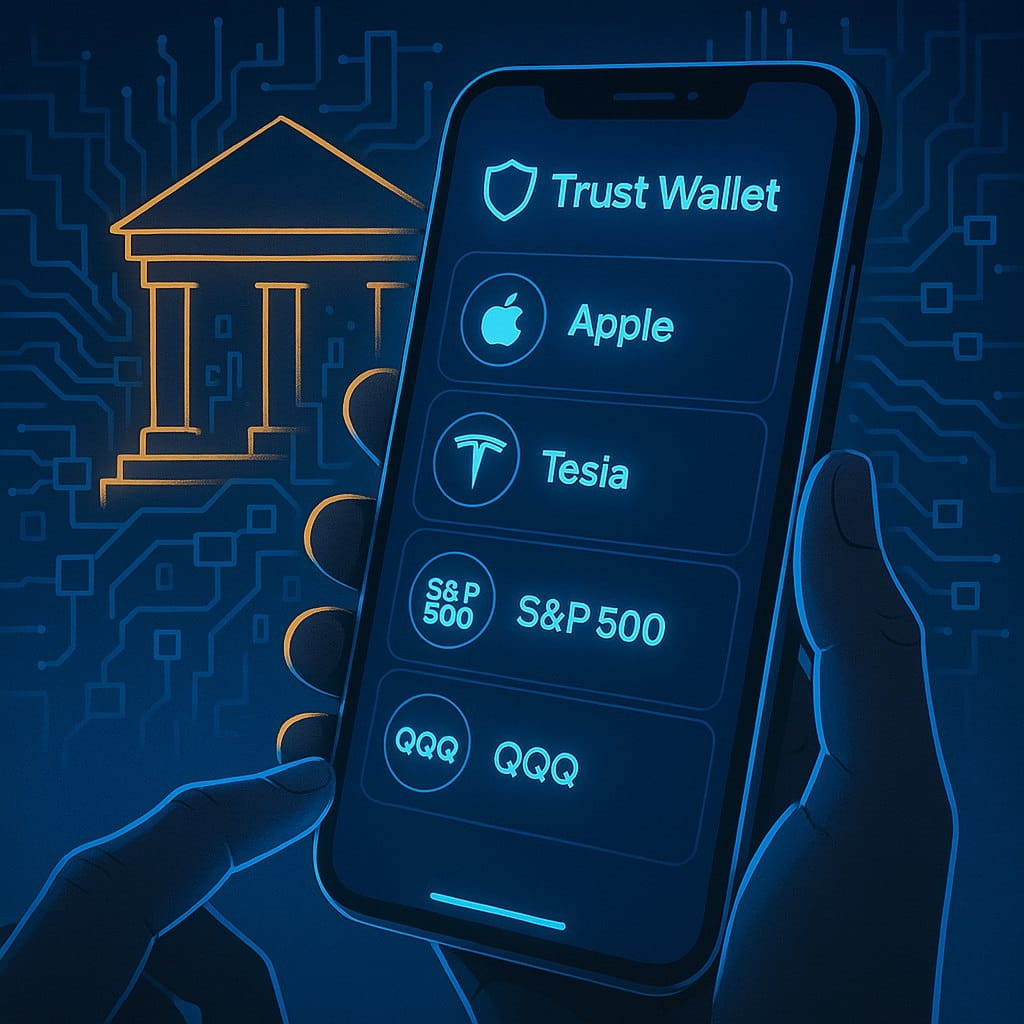Imagine having shares of Apple or an S&P 500 ETF stored directly in your cryptocurrency wallet, alongside your Bitcoin and Ethereum. This is not a science fiction scene, but the new reality that Trust Wallet, owned by Binance, has just made accessible to users worldwide. The integration of real-world assets (RWAs) into self-custody wallets promises to democratize access to traditional financial markets, but behind this innovation lie regulatory complexities, geographical limitations, and fundamental questions about the true ownership of these digital assets.

Tokenization and Self-Custody: A Promise of Borderless Access
The news arrived with little fanfare: Trust Wallet announced the official launch of real-world assets (RWAs) — stocks, ETFs, and bonds — in tokenized form. The plan had been known since June, but now anyone, from anywhere (with exceptions), can exchange these tokens using Ethereum and Solana.
Here's how it works:
Ondo Finance provides tokenized assets through smart contracts.
1inch ensures liquidity and optimizes prices for each swap.
Trust Wallet acts as the self-custody bridge, where the user owns their keys.
“Blockchain democratizes access to financial markets,” said Eowyn Chen, CEO of Trust Wallet. Her vision: a system where investing in a stock does not depend on your passport.
The Fine Print: Regulations, Hours, and Trust in Issuers
Access is not universal. According to Trust Wallet, users in the U.S., U.K., and the European Economic Area will not be able to trade these tokens. Additionally, operations will only be enabled Monday to Friday, from 13:30 to 20:00 UTC, replicating stock market hours.
Beyond geographical restrictions, there is a key point you should not overlook: owning the token is not the same as directly owning the underlying asset.
Lucien Bourdon, Trezor analyst, summarizes it this way:
With pure cryptocurrencies, your keys mean direct ownership.
With RWAs or stablecoins, your keys only safeguard the token. The real asset remains held by an issuer.
Trust in the issuer is essential, even if you have technical self-custody.
In Practice: First Steps in a Hybrid Market
For the end user, the process seems simple:
Open Trust Wallet.
Convert crypto to tokenized stocks or ETFs in seconds.
Keep those tokens under self-custody.
The background is more complex. This launch combines DeFi liquidity and assets from the traditional financial system, a terrain where technology is already ready, but regulation is not.
Sami Waittinen, head of marketing at Trust Wallet, makes it clear: “This is just the beginning. We want to integrate more RWA providers and expand global access.”
Power and Paradox in the Tokenized Era
Trust Wallet is pushing the concept of self-custody beyond the crypto world. For the first time, you can hold tokenized stocks as if they were stablecoins. But that power comes with a paradox: although you have absolute control of your keys, your ultimate ownership depends on a centralized custodian.
The question is inevitable: Are we witnessing the future of global investment or just an illusion of decentralization?


